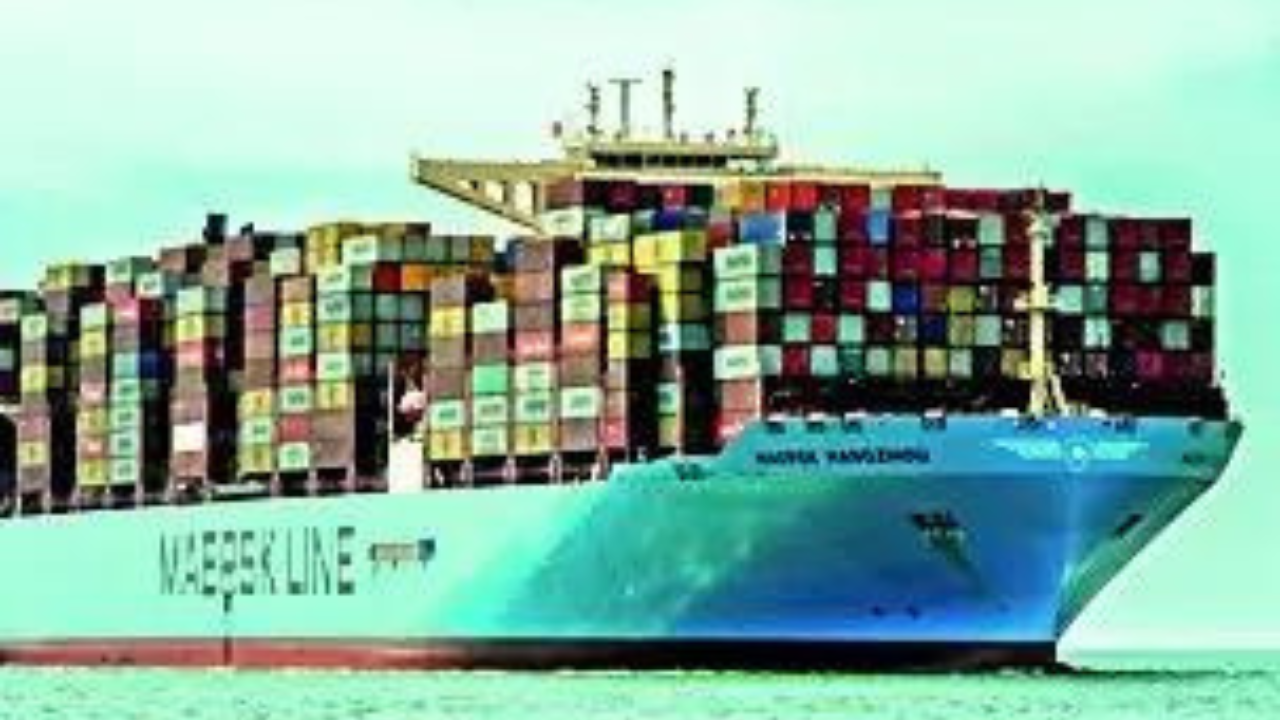JERUSALEM: Two American-flagged ships carrying cargo for the US defence and state departments came under attack by Yemen‘s Houthi rebels on Wednesday, officials said, with the US navy intercepting some of the incoming fire.
The attacks on the container ships Maersk Detroit and Maersk Chesapeake further raise the stakes of the group’s attacks on shipping through the vital Bab el-Mandeb Strait.The US and the UK have launched multiple rounds of air strikes seeking to stop the attacks. On Tuesday, the US, in its ninth strike in two weeks, hit two Houthi anti-ship missiles in Yemen.
Danish shipper Maersk identified two of its vessels affected by the attacks as the US-flagged container ships Maersk Detroit and Maersk Chesapeake. “While en route, both ships reported seeing explosions close by and the US navy accompaniment also intercepted multiple projectiles,” Maersk said. “The crew, ship, and cargo are safe and unharmed. The US Navy has turned both ships around and is escorting them back to the Gulf of Aden.” Maersk said both vessels carried cargo belonging to the US defence and state departments, as well as other government agencies, meaning they were “afforded the protection of the US navy.”
The US military’s Central Command in a statement blamed the Houthis for the attack, saying they fired “three anti-ship ballistic missiles.” “One missile impacted in the sea,” it said. “The two other missiles were successfully engaged and shot down by the USS Gravely”.
Meanwhile, Qatar, one of the world’s top exporters of liquified natural gas, said its shipments had been affected by the Houthi attacks. Qatar, a key mediator between Hamas and Israel, has yet to see any of its ships attacked, however. A statement from its state-owned QatarEnergy suggested that cargos now are travelling around Africa’s Cape of Good Hope, likely adding time to their trips.
The attacks on the container ships Maersk Detroit and Maersk Chesapeake further raise the stakes of the group’s attacks on shipping through the vital Bab el-Mandeb Strait.The US and the UK have launched multiple rounds of air strikes seeking to stop the attacks. On Tuesday, the US, in its ninth strike in two weeks, hit two Houthi anti-ship missiles in Yemen.
Danish shipper Maersk identified two of its vessels affected by the attacks as the US-flagged container ships Maersk Detroit and Maersk Chesapeake. “While en route, both ships reported seeing explosions close by and the US navy accompaniment also intercepted multiple projectiles,” Maersk said. “The crew, ship, and cargo are safe and unharmed. The US Navy has turned both ships around and is escorting them back to the Gulf of Aden.” Maersk said both vessels carried cargo belonging to the US defence and state departments, as well as other government agencies, meaning they were “afforded the protection of the US navy.”
The US military’s Central Command in a statement blamed the Houthis for the attack, saying they fired “three anti-ship ballistic missiles.” “One missile impacted in the sea,” it said. “The two other missiles were successfully engaged and shot down by the USS Gravely”.
Meanwhile, Qatar, one of the world’s top exporters of liquified natural gas, said its shipments had been affected by the Houthi attacks. Qatar, a key mediator between Hamas and Israel, has yet to see any of its ships attacked, however. A statement from its state-owned QatarEnergy suggested that cargos now are travelling around Africa’s Cape of Good Hope, likely adding time to their trips.


